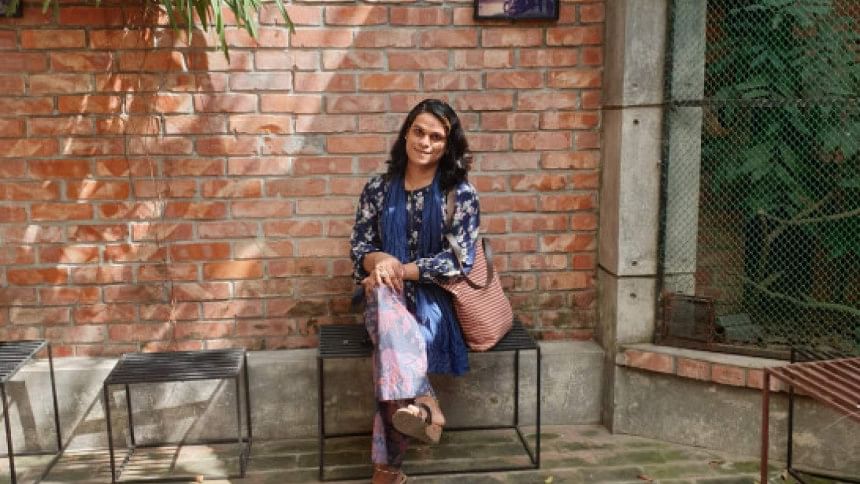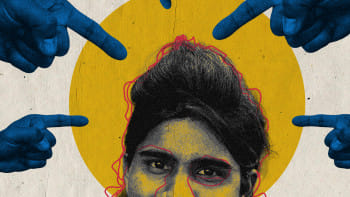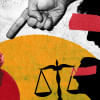One Hochemin Islam, our constitution, and ‘cisterhood’

Hochemin Islam, a prominent transgender rights activist, was set to speak at "Women's Career Carnival" on November 24 at the capital's North South University (NSU). However, the event, hosted by NSU's Career and Placement Center (CPC) and organised by Heroes for All and iSocial Limited, did not finally have Islam on board.
The decision to not allow Islam to speak was preceded by protests from a faction of the university's students. Through a formal "Letter of objection and notification about Criminal activity as per Bangladesh penal code chapter 16 article 377 inside our NSU campus and the Promotion of Homosexuality (Transgenderism & LGBTQIA+) on November 24, 2023," they sought to highlight that bringing Islam in would be illegal as it would incite outrage of religious feelings. The NSU authority finally decided against bringing her in, citing concerns regarding her safety.
In reality, Islam was going to speak on how the needs and vulnerabilities of marginalised communities could be mainstreamed into policies governing different facets of the labour market. Neither was she going to speak in favour of homosexuality, nor would she have spoken on sex reassignment methods (assuming that this is what the offended section of students was implying with using the word "transgenderism"). In any case, NSU was not right to succumb to the protests carried out by a group of students who did not quite know what they were doing.
But would NSU have been in the right if Islam had spoken on either or both the issues mentioned above? Section 377 of the Penal Code, 1860 is a controversial colonial holdover, inconsistent with rights of sexuality-variant individuals. On the other hand, "transgender" is an umbrella term for people whose gender identity does not match the sex they were assigned at birth, and encompasses sex-reassigned and intersex individuals, among others. Hijras, too, arguably come within the purview of having a transgender gender identity. Our labour market and built infrastructures marginalise both the gender- and sexuality-diverse population, alongside cis women and persons with disabilities. Everyone but able-bodied cis men virtually remain as fringe dwellers within the built environment in many respects. Hypothetically, even if a speaker wanted to share their views on the issues at hand, and even if those views stood in misalignment with the views of a group of students, NSU should have stood firm in allowing the speaker to speak.
While the students have every right to raise their voice if they perceive something as unbecoming, the onus lies on institutions who have a constitutional obligation to uphold the fundamental rights of the citizens (even the so-called private or non-state actors cannot shy away from constitutional obligations, especially when they undertake functions essentially of public nature, as per decisions of the apex court). The decision against bringing in Hochemin Islam was disproportionate to meeting the goal (that is, of ensuring her safety) sought to be achieved, and violative of the very essence of her constitutional right to nondiscrimination and freedom of speech and expression. At this stage, one may bring up the potential conflict between Islam's rights and the rights of the students. The students did exercise their constitutional rights by raising voices against bringing Islam in as a speaker. However, if anyone intends to view curtailing her rights in furtherance of realising their own, then that would be a distorted interpretation of how rights really work.
Earlier this year, gender-critical feminist Dr Kathleen Stock was invited by Oxford Union despite strong opposition from trans activist student groups. While many students and teachers at Oxford disagree with Dr Stock's views, she was allowed to speak; interestingly, while Stock was speaking, a trans activist glued themself to the debating chamber close to her chair. While the nature of the NSU protest shows how much we lag behind in terms of having the right knowledge and information, there is still a thread of similarity between the two incidents. Speech was perceived as intimidating in both cases. However, while Oxford Union stood firm in its decision of allowing Dr Stock to speak, NSU could not ensure the same for Hochemin Islam.
One factor that somehow went missing in the discussions is that Islam had been invited to speak for and on behalf of "women." Indeed, in terms of marginalisation, cis women and gender-variant people are comrades in arms. In certain contexts, gender-variant people become all the more vulnerable due to lack of recognition, access to essential services and goods, and lack of deliberative freedom. It is therefore important that gender-variant individuals speak alongside cis women and share their stories of oppression, subjugation, and intersectional discrimination in order to strengthen the narrative against gendered hegemony and dominance.
As part of second-wave feminism, "sisterhood" became an oft-used term to describe feminist solidarity against patriarchal oppression. In contemporary times, some feminists are showing commitment to biology to define women's solidarity, unmindfully giving sustenance to heteronormative "cisterhood." In a way, this cisterhood assumes a form of crude "cisterarchy" (combining cisterhood and patriarchy), as it tends to exclude gender-variant people who face equal degrees of patriarchal oppression.
Instead of welcoming the initiative of the organisers of inviting Islam to speak at a women's career event, NSU authorities silenced marginalised voices and also crippled the alliance between cis women and gender-diverse individuals. Unknowingly, this gave sustenance to cisterarchy, too—as if only cis women were allowed to speak on behalf of cis women.
The project of fundamental human rights originated and developed as an androcentric project, privileging a masculine worldview. Contesting "androcentrism" became the feminist assertion for women's human rights. However, at present, it is crucial to critically interrogate whom the term "women" does and does not refer to, and who in fact has the authority to decide on both respects.
Psymhe Wadud teaches international human rights law at the University of Dhaka.

 For all latest news, follow The Daily Star's Google News channel.
For all latest news, follow The Daily Star's Google News channel. 












Comments